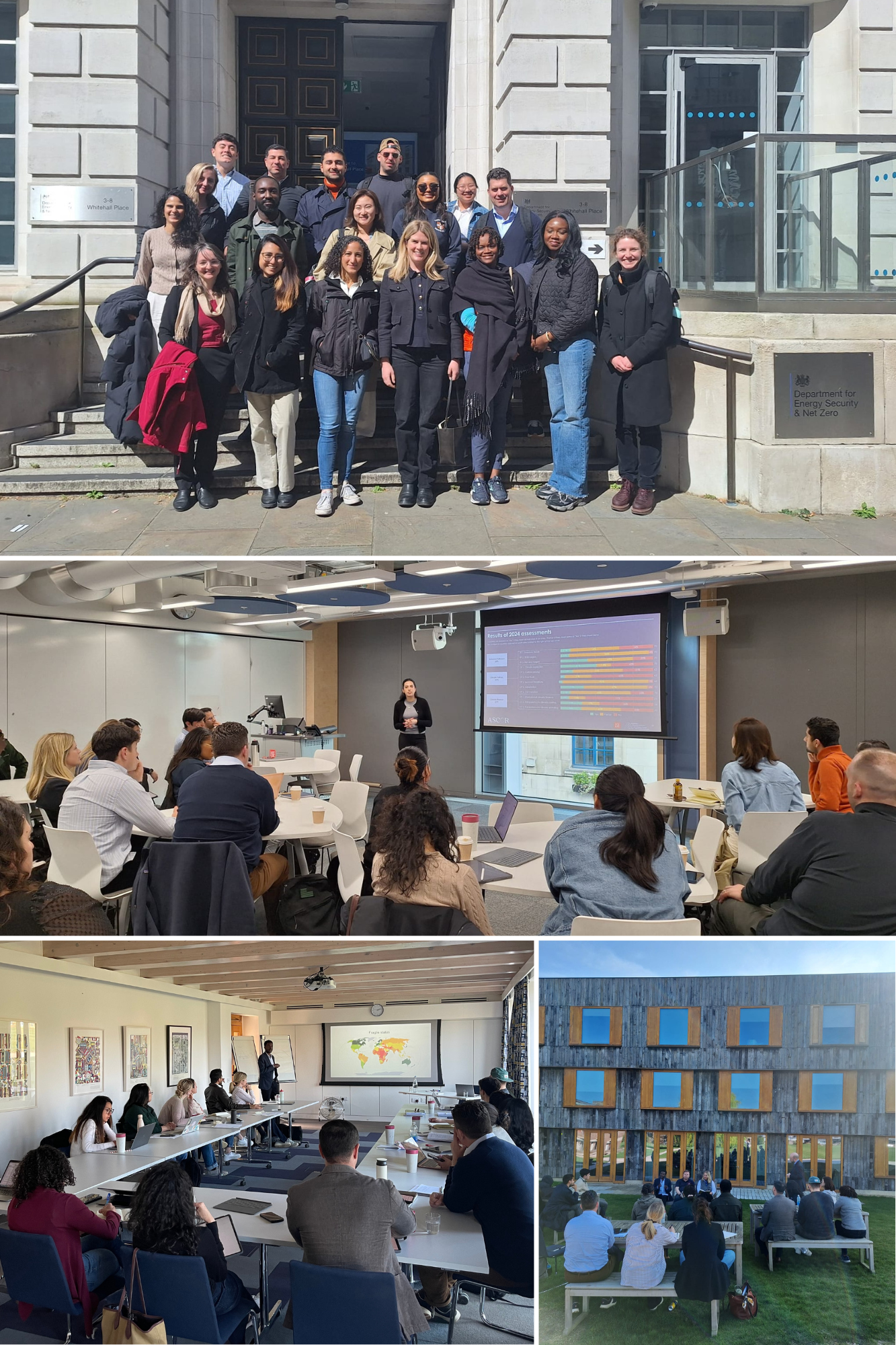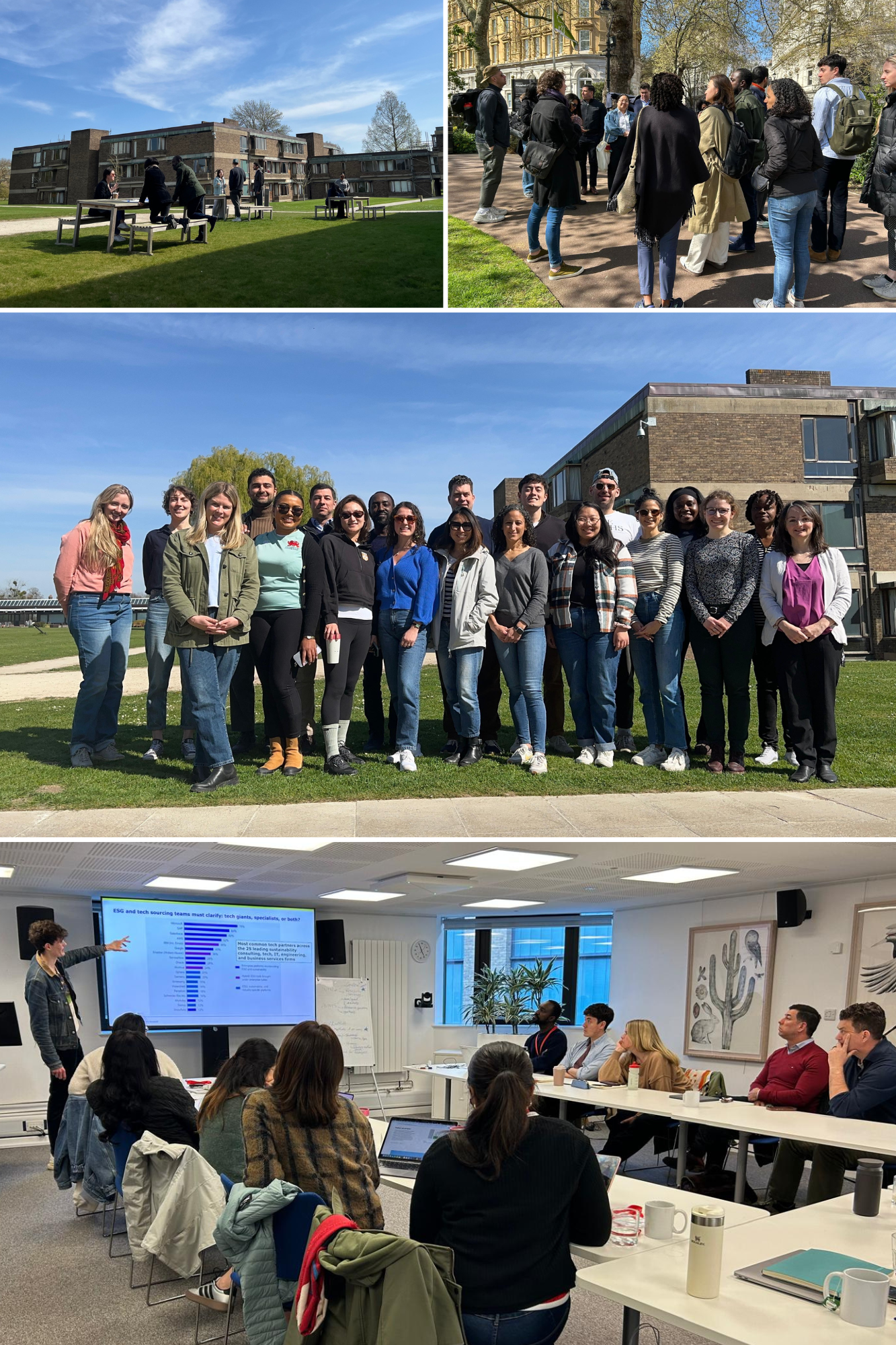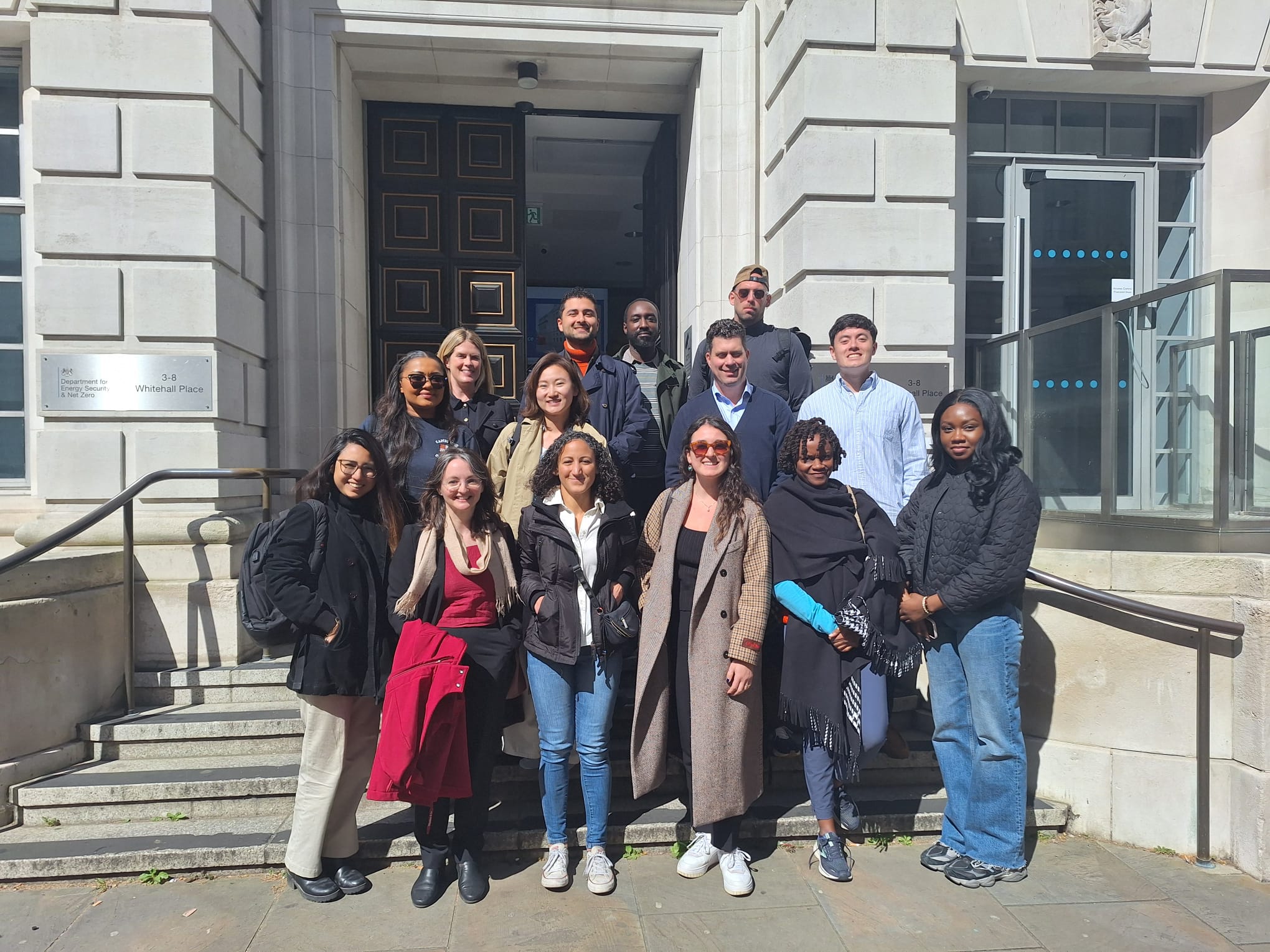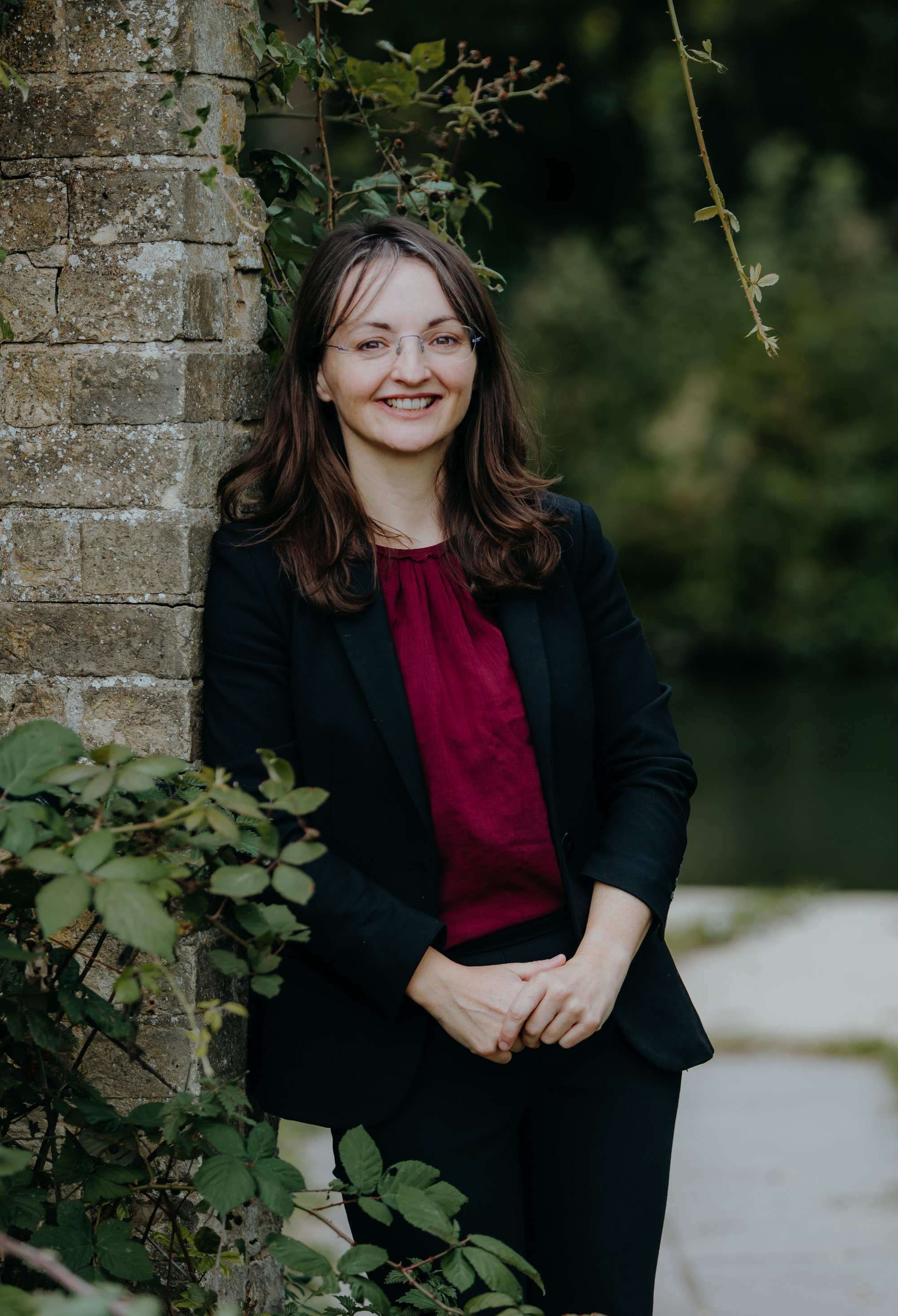The 2024-26 cohort of the students on the Department’s MSt in Climate, Environmental and Urban Policy has just successfully completed their second residential session, which was full of vibrant discussions.
Participants were in Cambridge from Monday 30th March to Friday 11th April.
The group attended an exciting and full timetable of sessions covering lectures in Law and Governance of Sustainability with Professors Viñuales and van Asselt, as well as sessions covering Sustainability Transformations, research dissertation discussions and more. There was also a visit to the Department for Energy Security and Net Zero (DESNZ) and the Transitions Pathway Initiative, both in London.

There was also a panel roundtable with three scholars from other departments at the university, and several guest speaker sessions.
Students had plenty of opportunities to meet others at the University, including a panel roundtable followed by formal hall, and social gatherings with members of the Department of Land Economy (including from the Cambridge Centre for Environment, Energy and Natural Resource Governance (CEENRG)) and the Lucy Cavendish Future Global Leaders Programme.
Dr Ilona Kater, Teaching Associate at the Department of Land Economy, said,
"The real strength of this course continues to be its diversity. Not only are students taught a range of materials within their classes, but the breadth and depth of expertise represented within the cohort mean that these materials are constantly being tested by the real-world knowledge of these practitioners. By bringing an applied and critical approach to discussions, students and staff become better equipped to translate theory into nuanced and meaningful action in a range of contexts."
Dr Rosalyn Old, Teaching Associate at the Department of Land Economy, said,
"This course is the perfect illustration of the truly interdisciplinary nature of Land Economy at Cambridge. By studying climate, environmental and urban policy in parallel, students have the opportunity to continually explore the links, potential tensions and areas of opportunity between the fields, and to consider how they might take those forward in their own areas of work."



